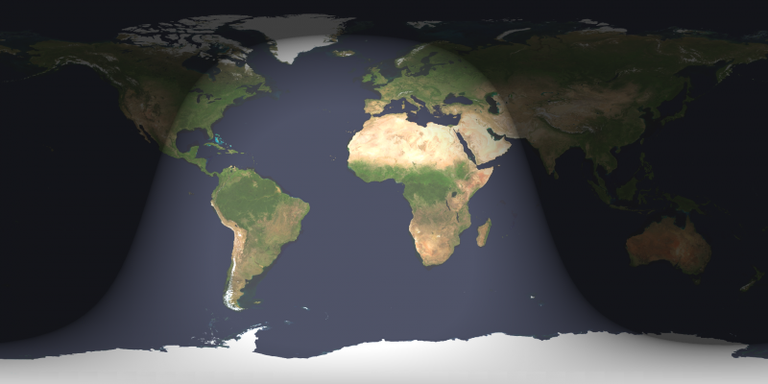The Blue Moon – second of two full moons in one calendar month – will pass through the Earth’s shadow on January 31, 2018, to give us a total lunar eclipse. Totality, when the moon will be entirely inside the Earth’s dark umbral shadow, will last a bit more than one-and-a-quarter hours. The January 31 full moon is also the third in a series of three straight full moon supermoons – that is, super-close full moons. It’s the first of two Blue Moons in 2018. So it’s not just a lunar eclipse, or a Blue Moon, or a supermoon. It’s all three … a super Blue Moon eclipse!
Is it the first Blue Moon total eclipse in 150 years, as some social media memes are now claiming? It is … if you’re not considering the whole world, but only the Americas. More about that below.
IMPORTANT. If you live in North America or the Hawaiian Islands, this lunar eclipse will be visible in your sky before sunrise on January 31. 
Eclipse times in Universal Time
Partial umbral eclipse begins: 11:48 Universal Time (UT)
Total eclipse begins: 12:52 UT
Greatest eclipse: 13:30 UT
Total eclipse ends: 14:08 UT
Partial umbral eclipse ends: 15:11 UT
How do I translate Universal Time to my time?
Eclipse times for North American time zones:
Eastern Standard Time (January 31, 2018)
Partial umbral eclipse begins: 6:48 a.m. EST
Moon sets before start of total eclipse
Central Standard Time (January 31, 2018)
Partial umbral eclipse begins: 5:48 a.m. CST
Total eclipse begins: 6:52 a.m. CDT
Moon may set before totality ends
Mountain Standard Time (January 31, 2018)
Partial umbral eclipse begins: 4:48 a.m. MST
Total eclipse begins: 5:52 a.m. MST
Greatest eclipse: 6:30 a.m. MST
Total eclipse ends: 7:08 a.m. MST
Moon sets before end of partial umbral eclipse
Pacific Standard Time (January 31, 2018)
Partial umbral eclipse begins: 3:48 a.m. PST
Total eclipse begins: 4:52 a.m. PST
Greatest eclipse: 5:30 a.m. PST
Total eclipse ends: 6:08 a.m. PST
Partial umbral eclipse ends: 7:11 a.m. PST
Moon may set before end of partial umbral eclipse
Alaskan Standard Time (January 31, 2018)
Partial umbral eclipse begins: 2:48 a.m. AKST
Total eclipse begins: 3:52 a.m. AKST
Greatest eclipse: 4:30 a.m. AKST
Total eclipse ends: 5:08 a.m. AKST
Partial umbral eclipse ends: 6:11 a.m. AKST
Hawaii-Aleutian Standard Time (January 31, 2018)
Partial umbral eclipse begins: 1:48 a.m. HAST
Total eclipse begins: 2:52 a.m. HAST
Greatest eclipse: 3:30 a.m. HAST
Total eclipse ends: 4:08 a.m. HAST
Partial umbral eclipse ends: 5:11 a.m. HAST
Hi! I am a robot. I just upvoted you! I found similar content that readers might be interested in:
http://earthsky.org/?p=270280
Hi, I found some acronyms/abbreviations in this post. This is how they expand: